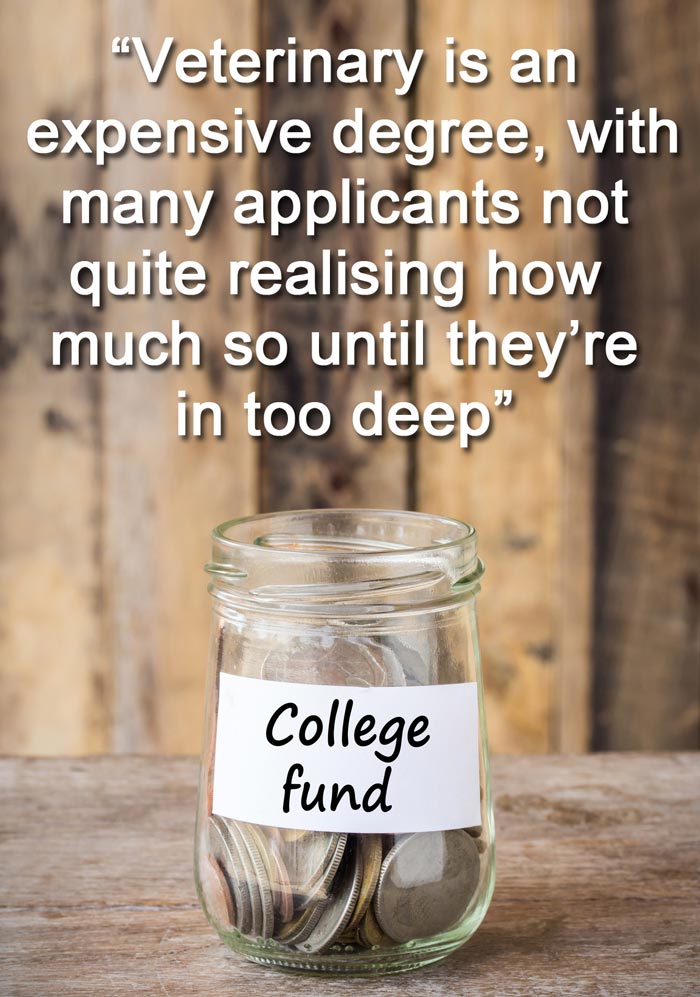With the upcoming general election, the question of changing tuition fees has cropped up again.
People obsess over the fact rising tuition fees are putting poorer families off from sending their children to university. But I think they’ve got it wrong – tuition fees aren’t the problem.

Tuition fees are only paid back once you earn enough to manage it. Therefore, they don’t affect the student in the present, while he or she is studying. Out of interest, I recently logged into my student loan repayment account and was presented with a pretty scary number.
Irrelevant
Having calculated what I’ll pay back on my starting salary, I found, to begin with, the debt will actually continue to increase because I would be paying off less than the interest that accumulates every year. That just seems ludicrous – how will I ever pay it off? The answer is I won’t. The loan is written off after 30 years; so, assuming I won’t come into a massive sum of money or win the lottery, the total owed is irrelevant.
I’m not really sure of the economics of how on earth the loan companies or government can find this sustainable, but I’m just discussing how it affects the students here.
The point is, we should ignore that big scary number of total debt and just think of it as a graduate tax. You go to university to get a good education, which should give you the knowledge and skills to get a better career or progress more quickly within that career. For that, you accept a (very small) proportion of your pay packet every month disappears into the ether of student loan repayment – and, since you don’t pay it back until you reach the threshold for repayment, it is not unaffordable.
Surviving during semesters
What is unaffordable is trying to survive at university with nothing in your bank account. Poor or middle-of-the-road people struggle because they don’t have enough “maintenance”, not because they have to pay tuition. The issue is having enough money to live off now.
It’s all very well suggesting students get part-time jobs to help them pay their way through university, but that can be detrimental to the end result as it takes away time from studying and, in some degrees – such as veterinary – it becomes near impossible due to contact time and, later, rotations and clinics.
Some people do manage it, and fair play to them, but it’s certainly tough.
Stuck in the middle

It’s not just the poor who struggle. In fact, the poor are better off because of means testing. It’s often the people in the middle who are stuck – those whose fates have been decided by some higher power that has ruled they’ll receive less government funding because their parents’ income means they should be able to support their children.
Wrong!
That’s okay for the rich, but for those in the middle, the family often cannot afford to stump up the difference.
What about mature students? It’s ridiculous they are still means-tested even though they could well have been living independently for years without the financial support of their parents and may not even have anything to do with them anymore.
Measured maintenance
Maintenance should not be one size fits all either. Vocational degrees, such as veterinary, require many more materials than arts degrees, for example. Over the five years of my veterinary degree, I bought:
- protective clothing (boiler suits, lab coats, wellies, waterproofs, scrubs, gloves and hospital shoes)
- equipment (a thermometer, stethoscope and dissection kit)
- books amounting to an estimated £700 (not including my laptop)
On top of that, there’s the petrol and accommodation costs of EMS placements and rotations, not to mention the fact having to do EMS in holiday time takes away the opportunity to get a summer job.
Veterinary is an expensive degree, with many applicants not quite realising how much so until they’re in too deep. So, surely maintenance grants and loans should reflect that?
The political parties are isolating young people and students for various reasons, and part of me believes it’s because they don’t understand what we want or need. We need to stop obsessing over tuition fees and ask the students themselves why they are struggling.


